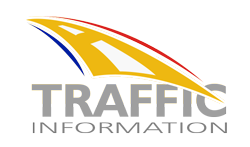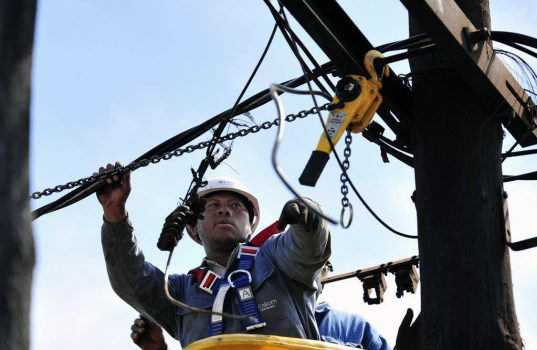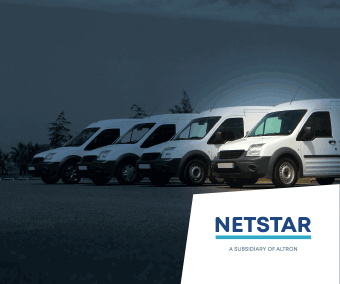Chemical and Allied Industries’ Association asks for comprehensive independent audit of Eskom
Eskom should answer to the need for electricity tariff reductions and why this is not possible says Deidré Penfold, Executive Director of the Chemical and Allied Industries’ Association (CAIA).
CAIA also appeals to NERSA to conduct a comprehensive independent audit of Eskom’s operations, as well as its capital expenditure, in particular, but not exclusive, on the new power stations.
CAIA further calls on NERSA to proceed with the public hearings that have been planned, but to reserve its ultimate decision on this application until there is a way forward with Eskom, which it views as a failing state-owned entity, says Penfold.
CAIA, therefore, calls on South Africans at large to peacefully:
• oppose the proposed tariff increases both at the Eskom and municipal level
• demand accountability
• ensure that the leadership of this country take the necessary steps to prudently restructure Eskom
On 7 December this year, the National Energy Regulator of South Africa (NERSA) will make its decision on Eskom’s revenue application for the 2018/19 financial year – amounting to over R219 billion or an average tariff increase of 19,9%.
This follows NERSA’s decision to make Eskom comply with most of the requirements of the Minimum Information Requirements for Tariff Application and the recently revised Multi-Year Price Determination Methodology, following an application brought by Eskom to deviate from meeting certain requirements.
If approved by NERSA, this will contribute to the more than 343% increase (17 c/kWh in 2005/6 to 75,0 c/kWh in 2015/16) in average electricity prices that have been felt over the last decade. The result will be a staggering increase of 429%.
“The Chemical and Allied Industries’ Association (CAIA) represents companies throughout the major sub-sectors of the value chain, from manufacturers to waste management companies. CAIA members, for whom electricity is the primary source of energy, consume over 11 100 kWh of purchased electricity annually. Electricity pricing has an economy-wide impact, including a negative effect on inflation, not only for our members but for all South Africans,” says Penfold.
“With numerous reports having been undertaken in the private and public sectors, CAIA believes that there is, and has been for some time, sufficient doubt over the management and expenditure of Eskom that further increases cannot be warranted.
“Added to this is the reported over-supply of electricity that in fact should drive electricity prices down in a rational institution and economy. This excess in generation capacity, expected to endure until 2021, was publicly acknowledged by Energy Minister Mmamoloko Kubayi on 1 September when the decision to put ‘all future programmes on hold until a proper review is done and to allow the Integrated Energy Plan (IEP) and Integrated Resource Plan (IRP) to be concluded that will give us an indication of the capacity we need’ was announced,” says Penfold.
Although CAIA welcomes statements from the Department of Energy, Kubayi’s statement does not only speak to the current lack of rational energy policy in the country, but to a potential loss of investment in the successful renewable energy programme, as well as the stranding of assets already invested in by independent power producers.
Electricity production by private producers should at least be considered as a mechanism to introduce competition and increased environmental sustainability into the market, but this possibility appears to be at risk as a result of the recent discussions and policy statements. Such discussions and policy statements should be reserved until the rational IRP and IEP are published and provide investors with policy certainty.
Penfold says Eskom should answer to the need for electricity tariff reductions and why this is not possible.
In a study conducted by CAIA during 2015 in response to the 2 c/kWh increase in the electricity levy that was to be imposed by the National Treasury, CAIA members indicated that the impact on their businesses would be substantial.
The proposed 19.9% hike that would be increased even more by any additional municipal tariff increases beyond the Eskom hike, would mean an additional approximately 15 c/kWh to be passed on to an already cash-strapped consumer and struggling economy, would make electricity even more inaccessible to the poor, would make South Africa less competitive, and would have an overall negative socio-economic impact on the country.
“NERSA’s mandate is to conduct vigorous analyses to arrive at decisions that will ensure the sustainability of the licensee while protecting customers against unduly high prices and analyses applications conducting a prudency test and only costs that are prudently and efficiently incurred are allowed.
“NERSA further states that although high increases are detrimental to the already subdued economic growth, the sustainability of Eskom is equally imperative to ensure stable and reliable electricity supply to support economic growth.
“Against the background of South Africans calling for increased accountability and given the mandate of NERSA, CAIA appeals to NERSA to conduct a comprehensive independent audit of Eskom’s operations, as well as its capital expenditure, in particular, but not exclusive, on the new power stations,” says Penfold.
“Based on the information released by the Department of Energy, the need for a rational energy policy to be finalised, and official investigations to be launched regarding the management and expenditure of Eskom, as well as a thorough socio-economic impact assessment to be conducted and shared with the public, CAIA calls for the Regulator to proceed with the public hearings that have been planned, but to reserve its ultimate decision on this application until there is a way forward with Eskom. The impact of decisions regarding energy pricing should, after all, be taken in the interest of the public as far as possible,” says Penfold.
Related Posts
« Man killed in Westville crash UIC, the worldwide railway organisation, is involved in Sustainable Tourism on Rail »
























